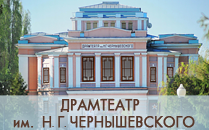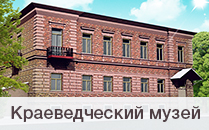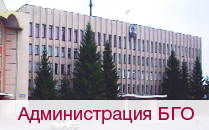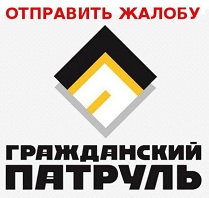Marc Bennetts "The People’s Wrath" - Марк Беннетс "Народный гнев"
Какой-то человек на форуме написал, что прочел фрагмент книги Марка Беннетса про Путина и его преступления. Автор очень переживал, что там и про Хопер написано. Предлагал даже какой-то кусок перевести.
Автор поста не жалеет себя - сочувствую.
Чтобы не содействовать его мучениям - посылаю целиком главу прекрасного журналиста Марка, который был у нас на Хопре и помог включить нашу борьбу в международную повестку. Чтобы про нее узнали в тех краях, куда офшорные мудаки хотели наш никель продать.
* * *



The protest movement may have been cracking up under relentless Kremlin pressure, but the discontent that inspired its challenge to Putin’s rule was going nowhere. Regional issues – economic, environmental and social – continued to stir up dissent in the country’s provinces. Massive increases in payments for housing utilities triggered demonstrations in central and north Russia in the spring of 2013, signalling new dangers for the authorities.
Around the same time, I began to hear reports of rising tensions in central Russia’s fertile Black Earth region, known for centuries as the country’s ‘breadbasket’, where locals were unhappy about a Kremlinbacked nickel-mining project. The dispute was a classic example of the arrogance and intransigence of Russian officials when faced with popular discontent. Opinion polls had indicated that 98% of locals were against the extraction project,1 which they feared would prove catastrophic for both their health and local agriculture. A series of well-attended protests had even made national news. But regional officials – let alone the Kremlin – were not listening. Appeals for a referendum on the proposed mining had been stonewalled and the activists had – predictably – been 236 Kic k ing the Kremlin subject to a smear campaign that painted them as Western agents seeking to spark unrest. Their homes had also been raided by police and FSB agents.
The fears that nickel would bring disaster to the area were well founded. Nickel extraction has blighted towns and cities across Russia, most notably north Siberia’s Norilsk, which has been transformed by nickel-ore smelting into one of the most polluted places on Earth, 2 with life expectancies some ten years lower than Russia’s already unenviable average of sixty-nine (and just sixty-four for men). 3 I had ties with the area: it was in the region’s biggest city, Voronezh, that I had first met my wife, Tanya. As the year went on, we started to hear more and more from friends and acquaintances about the resistance to the project. One of the leaders of the Black Earth protest movement was Konstantin Rubakhin, a thirty-seven-year-old poet and former Channel One analyst, who had spent part of his childhood in a tiny, picturesque village in the region; his family still owned a home there.
‘News about the project was a massive shock,’ Rubakhin, tall, fairhaired and dressed all in black, told me when I met him at Masterskaya, a club-cum-café tucked just out of sight of the Kremlin’s walls. It was here that activists had organized election protests in the delirious winter and spring of 2011 and 2012. ‘I’d been living away from the area for over ten years,’ he went on, ‘but I immediately returned to help fight against the project.’ Rubakhin was all too aware of the risks of environmental activism in Russia. ‘I’ve taken steps to defend myself,’ he told me, flashing a traumatic pistol, a handgun that shoots rubber bullets at high velocities.
‘What’s going on in the Black Earth region is something else, completely different,’ he told me, raising his voice over the music at the club as he repocketed his weapon.
We Used to See All Those People Marching in Moscow…
The experiences of the Black Earth region protesters were similar to those Chirikova had gone through while battling the Kremlin-backed highway. She had also spent months writing letters of complaint, before realizing that only direct action would make a difference. It also took Chirikova time to understand the link between her local problem and the wider implications of Putin’s rule. It was a connection the Black Earth activists had yet to make.
‘My father told me this was actually the fourth time our house here has been raided since it was built,’ the Moscow-based activist said with a wry smile. ‘The other three times were by the KGB.’
The spread of the internet had, inevitably, played a major role in fomenting this unexpected dissent in Russia’s conservative heartland. ‘Before, we would all have been isolated from one another, with no way of finding out if what they said on television was true,’ Rudchenko said.
She gestured towards a computer underneath a religious icon. ‘Now almost every home in the village is linked to the internet. This makes it easy to organize ourselves.’
The Curse of Nickel
His modern-day counterparts were equally defiant. ‘The authorities have sold out the people,’ Zhitenyev told me as he and his Cossacks walked away from the drilling site. ‘I was speaking to local administration officials recently and I told them: “The people are against the extraction of nickel.” “What people?” they laughed. “You lot aren’t the people.”
‘But if we aren’t the people, then who is?’ the Cossack leader asked, clearly baffled ‘We are a simple people, we don’t need much. Those officials steal and build themselves mansions, and we always just thought, “Ah, to hell with them,” and got on with our lives. But now they are even threatening our way of life. And our lives.
‘I really don’t know what’s going to happen if they start mining here,’ he went on. ‘Lots of people say, “I’d give my life to stop the nickel. At least then I won’t have to feel ashamed in front of my kids after they destroy the land.”’6
A Precedent for the Whole Country?
Back in the village of Novokhopyorsk, activists gathered at a makeshift HQ in a local house to discuss further tactics. The fussy housewives, potbellied market traders and middle-aged Cossacks sitting around a table laden with sausage, vodka and fruit were a far cry from the Moscow hipsters at the heart of anti-Putin protests in the Russian capital.
Significantly, though, one thing the Black Earth activists had in common with the Putin movement was the presence of nationalist and far-right elements among its ranks. ‘There are people in our eco-movement who believe all that Kremlin propaganda, that the anti-Putin demonstrations are funded by the US State Department, and so on,’ Rubakhin admitted, with a grimace.
Anti-Semitic slogans were also common at anti-nickel rallies. ‘Theywere shouting “Kill the Jews and the Yids!” at a recent protest,’ one of the handful of liberal activists in the movement told me later. ‘It’s a real dilemma for me to attend such events,’ he said. ‘On one hand, I’m against any nickel mining, but, on the other hand, do I really want anything to do with such people?’
Kicking the Kremlin
‘They are not going to shoot us. We’ve got the internet and everything today. They wouldn’t dare.’ She turned to me and smiled: ‘Eat up!’
Комментарии0
Нет комменариев

 Координатор движения
Координатор движения 










 Innim
Innim